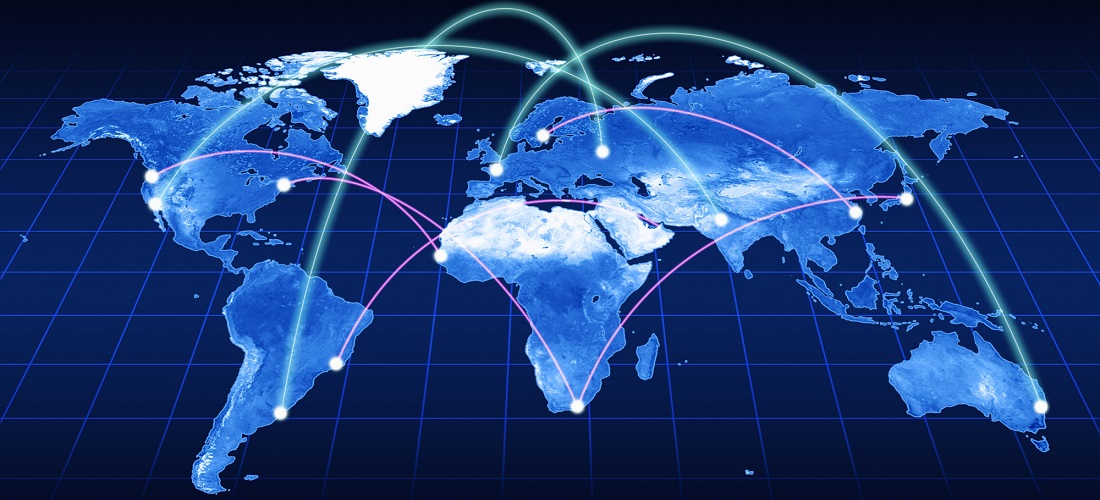
“Deglobalization” opens room for Brazil to diversify international insertion
Oct, 30, 2023 Posted by Gabriel MalheirosWeek 202344
Brazil did not enjoy the globalization process that started in the 1980s to its fullest potential. Still, it may have a second chance now amid the current deglobalization process – essentially an adjustment of globalization. Two episodes from last week suggest that a new window of opportunity is opening for the country to enhance its international engagement.
From 1990 to the present day, the share of emerging countries in global exports has more than doubled. However, Brazil’s participation has grown at a much slower rate, at around 20%. Moreover, during this period, Brazilian exports concentrated on primary goods, with a loss of market share in manufactured products.
Now, the world is going through a period of confrontation between the old hegemonic superpower, the USA, and an emerging superpower, China. The relationship between the two countries has been deteriorating as Washington tries to slow down Chinese technological development, and Beijing adopts more aggressive stances in its foreign relations.
This tension leads to various challenges. The West is blocking the export of high-tech items to China while seeking to reduce its dependence on Chinese products and inputs. Western companies are encouraged to reduce their exposure to China through processes like “de-risking,” which involves moving parts of their production chains to more friendly countries, and “friendshoring,” which is about collaborating with nearby nations or “nearshoring.”
Many analysts describe this as a process of deglobalization or the reversal of globalization, but it’s more likely to be an adjustment within the context of the last 40 years of globalization due to global geopolitical changes. This shift seems to be creating opportunities for countries like Brazil. Two recent episodes illustrate this.
A US delegation visited Brazil last week, including government officials (the embassy, the Department of State, and Eximbank) and representatives from companies such as Nvidia, Meta, Google, and Cloudflare. They aimed to negotiate the development and production of processing chips (not memory chips) with mature technology (above 16 nm) in Brazil to supply the domestic and American markets.
These chips would typically be produced in China, but the US now needs to create an alternative network of reliable partners in case China abruptly cuts off its supply. This is similar to what the US is doing by halting the sale of high-tech chips to China. Or what Russia did by cutting off natural gas supplies to European countries following the Ukraine war.
During a meeting at the University of São Paulo (USP), the American delegation discussed issues like technology transfer and financing for production in Brazil as the US industry focuses on producing more advanced, higher value-added chips. These advanced technology chips are still widely used in applications like edge computing and swarm computing.
US President Joe Biden had already expressed an interest in making Mexico a player in the semiconductor chain for these chips.
The other episode was China’s announcement of requiring export licenses for graphite. Such measures are typically used to restrict exports. This seems to be a Chinese response to the export restrictions imposed by the US government.
Graphite is a fundamental component, among other things, for the batteries that power electric cars. There’s intense competition for market share in the electric vehicle sector, with Chinese companies in the lead. China is the world’s largest graphite producer (67% of global production) and accounts for 90% of the refined graphite used in electric vehicle batteries. Any export restrictions on this product would significantly impact Western battery and vehicle companies.
As the world’s third-largest graphite producer, Brazil, in this case, is a candidate to be an alternative to Chinese products. There are Brazilian companies that produce refined graphite.
These are just two very recent examples of opportunities arising from the West’s race to redefine its area of influence and economic trust, which is leading to the formation of alternative production chains to those of China and even Asia.
President Joe Biden aims to reindustrialize the USA to compete with China. Trillions of dollars will be invested in this endeavor in the coming years, and there’s enormous potential to become part of these new American/Western supply chains.
Brazil, apart from offering an important industrial base, also produces industrial products with a lower carbon footprint due to its cleaner energy matrix compared to most countries.
By Humberto Saccomandi.
Source: Valor Econômico
Click here to see the original text publication: https://valor.globo.com/mundo/coluna/desglobalizacao-comeca-a-abrir-oportunidades-para-o-brasil.ghtml
-
Trade Regulations
Aug, 24, 2021
0
Exporters go to court to maintain tax benefit
-
Economy
May, 04, 2022
0
ECLAC: Slowdown deepens in Latin America with regional growth forecasted at 1,8% this year
-
Ports and Terminals
Sep, 19, 2023
0
Itajaí Port Complex throughput reaches 1.4 million t in August
-
Ports and Terminals
Apr, 02, 2024
0
Port of Niterói to receive federal investments

